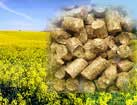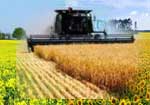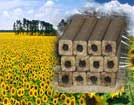






2. Pellets 8mm
3. 6-8 mm DIN+ Quality Pellets
4. We manufacture and sell fuel pellets from straw to European countries
5. Sell wood pellets
6. Wood pellet manufacturing
7. Sunflower Husk Pellets
8. Din Plus Wood Pellets
9. Export of sunflower husk pellets to the European market
10. Export of sunflower husk pellets to the European market
Industrial network on wood pellets
Sat-05-2011From the production to the marketing of a comfortable biomass fuel
With the project "Industrial network on wood pellets - from the production to the marketing of a comfortable biomass fuel" (Thermie B project DIS2043/98-AT, DGXVII) project partners from Sweden, Norway, Germany and Austria have been supporting and encouraging the market penetration of this relatively new biogenic energy source. The main geographical focuses were Sweden, Germany and Austria where the pellet markets are most highly developed, and Norway, which, because of its proximity to Sweden and the raw material potential, has considerable promise. These countries play a pioneering role in the pellet sector and provide stimulus for neighbouring countries.
The project had two complementary focuses:
Analysis of the state of the art in pellet technology
In the participating countries with particular reference to market potential, technical and nontechnical obstacles and strategies for improving market penetration. The method included an evaluation of written documents, questionnaires (end users, heating system manufacturers, suppliers and pellet manufacturers), personal interviews and roundtable discussions with key players, and discussion within the project group.
The study also has a brief review of the pellet market in the United States where the technology originated. The European situation differs markedly, however, particularly with regard to the greater weight of environmental arguments in marketing.
The results are summarised in a publication. The findings can be transferred to other (EU) states - with adjustments for specific national aspects in some cases - and used to speed up the introduction of pellets by building on clearly formulated experience, avoiding known obstacles and encouraging positive influences. The publication includes a list of manufacturers of heating systems and pellets in the countries concerned.
The implementation and initiation of specific marketing activities and a pan-European exchange of experience
Project meetings took place in Sweden and Germany at which specific themes were discussed (pellet manufacture, pellet quality, logistics, heating and conveyor technology) and pelletising works and pellet heating systems visited. The highpoint of the international exchange of experience was the organisation of the First European Roundtable on Wood Pellets in Salzburg (Austria) in October 1999 with the participation of 200 experts from all over Europe. Apart from the conference there was also a poster session and exhibition (burners, stoves, analysis systems, dies).
Various activities aimed at greater market penetration have been initiated in the countries participating in the project. These activities included
• discussion and exchange of experience with national experts,
• information events,
• roundtables,
• articles in trade magazines and speeches,
• consultancy for users and multipliers,
• the publication of information brochures and also
• an initiative to improve pellet quality and standardisation and
• motivation of the builders of co-operative dwellings to opt for pellet heating systems.
Conclusions of the project
• Wood pellets have enormous market potential as a biomass fuel although their current share of the heat energy market in general and the biomass fuel market is very small at present. The potential exists because of the availability of the raw material, the comparatively high energy density, the possibility of their use in automatic firing systems with a high level of user convenience and, not least - provided that certain energy policy conditions are fulfilled
- their competitive price. For small systems in particular this opens up a new dimension in practical biomass heating, which, under certain circumstances, could represent a genuine alternative in this area to oil or electric heating.
• The main technical challenge is the obtaining of high fuel quality (low dust component and no impurities or dangerous additives), efficient, highly reliable and user-friendly heating systems, gentle transport and storage techniques, the development and standardisation of charging systems, and rapidly available and professional service. Communications problems and competition between the different players make co-ordination difficult. In many cases the absence of an infrastructure (no chimneys, no water-based central heating systems) is a barrier to the installation of pellet heating. A poorly functioning or non-existent supply system (market) for fuel, heating systems and services could also discourage consumers from changing over to this heating system. Traditional heating customs and social influences are further possible hindrances. The main factor, however, is the economic one, where both fuel costs - now competitive in many European countries with non-renewable heating fuels
- and the much higher investment costs are telling issues. By and large, however, nontechnical obstacles are likely to have a stronger impact on market development than technical barriers.
• Strategies for further market penetration: Political support and direction remain indispensable if the carbon dioxide reduction targets formulated at a political level are to be achieved. Biomass (pellets) and the low-energy market can play an important role in this respect, which should be encouraged.
Source: http://ukrfuel.com/news-industrial-network-on-wood-pellets-6.html
Any copying and distributing withoutactive hyperlink is strictly prohibited!
Views: 2692
 Stobart biomass division is to make a deal
Stobart biomass division is to make a deal
Biomass Related News
- Benzenes production from biomass: new research
- Solar power battery charging becomes reality
- Small wood pellet fired biomass plant
- 6,000 solar panels have been installed over marketplace in London
- New solar panel breakthrough
- Refining Biomass in the Slovak Republic
- Safety Concerns about wood pellets
- Drax Group had its “Neutral” rating
- Unpopular Coal for burning biomass
- New revolutionary research in solar energy
|
© Ukrainian Biofuel Suppliers 2008-2024 |
